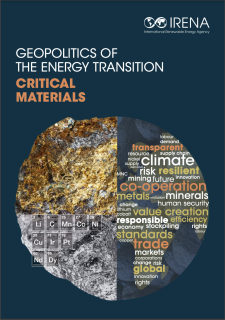
Critical materials are today the focus of much international dialogue and diplomacy. Their production and processing are highly concentrated geographically, posing challenges related to resource security and geopolitical dynamics. This concentration creates vulnerabilities and uncertainties for both consuming and producing countries that may affect the deployment, cost and sustainability of energy transition technologies. Strategies to diversify the supply and production chains for these materials are starting to emerge, reflecting multiple economic, political and social priorities and considerations.
The dependency risks and supply dynamics of critical materials fundamentally differ from those of fossil fuels, owing to their vastly different characteristics and patterns. Geopolitics of the energy transition: Critical materials highlights that current patterns of production and processing will remain largely unchanged in the coming years, stressing the importance of international cooperation and prudent policy choices to ensure that the energy transition advances at the necessary speed worldwide. It urges the development of transparent markets with coherent standards and norms, grounded in human rights, environmental stewardship and community engagement. The report also examines possibilities for developing countries to advance their industrialisation strategies and capture greater economic value from their mineral wealth.
This report investigates the evolving landscape of supply chains and trade patterns, as well as the socioeconomic and sustainability factors surrounding extraction and processing. Additionally, the report assesses the strategic significance of critical materials for economic competitiveness and the acceleration of renewable energy transitions.
